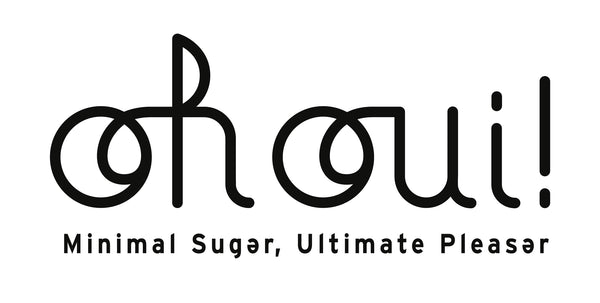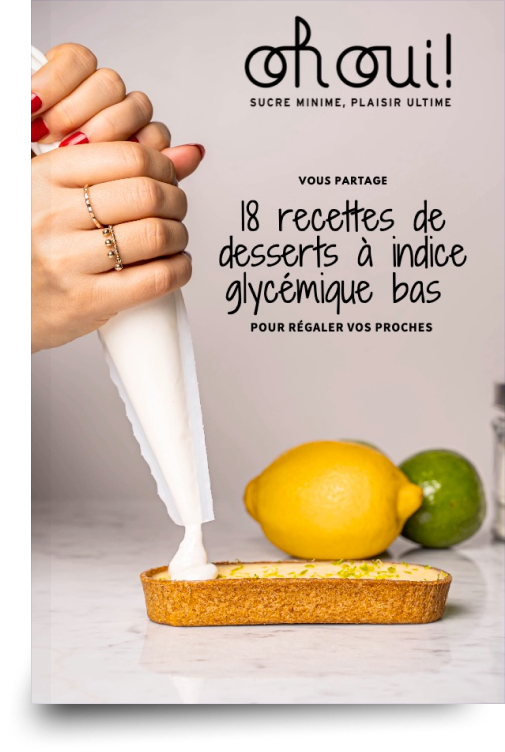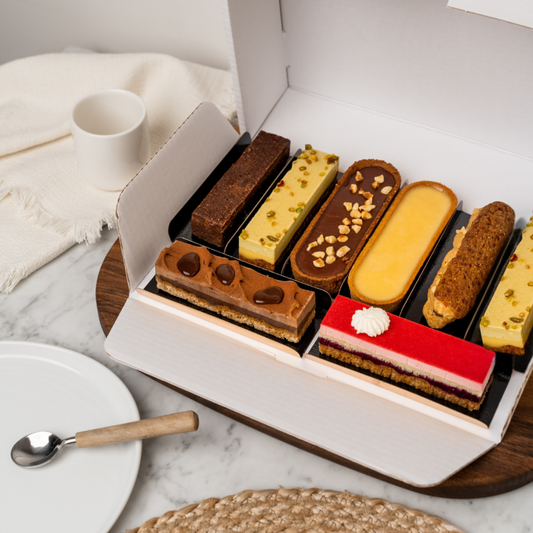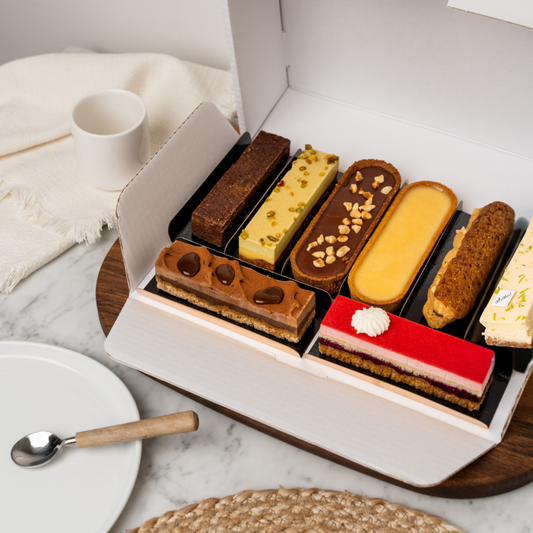Since the opening of the Oh Oui ! Boutique, we have had the pleasure of meeting some great people! We have learned a lot about diabetes from people who are committed to fighting stereotypes and preconceived notions. We asked them to answer 4 questions, so that they could share their own experience.
Three different and complementary profiles give you their tips and advice for living with diabetes! A high-level sportswoman, a coach who is full of ideas and projects, and a talented journalist talk about their daily lives as diabetics.
Who are they?
Pauline Pinsolle is a culinary journalist. When she was diagnosed with diabetes at the age of 28, she decided to get involved in supporting diabetics and their families. A graduate of the Haute École de Coaching, she advocates her diabetes as "an art of living and living well". Find all her coaching activities on her website https://www.sugarpalaceparis.com/
Alizée Agier is a karateka who represents the French national team. When she learns of her diagnosis at the age of 19, she decides to pursue her commitment to the sport. In 2019, she won the title of European champion, and is ranked eleventh in the 2020 Olympic rankings. Alongside her competitions, she works as an agent at the SNCF. Find her on her Instagram account: https://www.instagram.com/alizeeagier/?hl=fr
Nina Tousch is a journalist committed to diabetes information. She is the co-founder of the webzine Le Diabète Enchaîné. She launched this media in 2020 with one goal: to combine diabetes, arts and information. In her columns, she (sometimes) makes fun of the disease to better love it and tame it. She then created Diabetopole, which informs about diabetes on a European scale! Find these two media https://diabetopole.com/ and https://labelleetlediabete.com/le-diabete-enchaine-webzine/
1. What has diabetes changed in your life?
Pauline: Diabetes has given me a certain kind of awareness about listening to my body. My diet and lifestyle have always been balanced. But from the moment I decided to take diabetes as an additional opportunity to take care of myself, I developed my body and emotional awareness to bring as much balance as possible to my diabetes.
Alizée: When I was diagnosed with type 1 diabetes, I was already prepared because my results had been pointing to it for a year. So the diagnosis was not a shock, and I had been able to put it in the back of my mind. The first questions were obviously about my commitment to karate, and I was quickly reassured on that point! Then I learned to know my body and to adapt my daily habits: you learn to know your food, to understand carbohydrates, to decide on an insulin dose, to check your sugar level. Even if the mental load is quite high, it accompanies me in the rigor that one must follow to prepare for a competition. In a way, my lifestyle as a diabetic complements my preparation as a high-level athlete. And it's an eternal restart: I continue to learn more every day about how my body works!
Nina: Diabetes has changed my relationship with my body. I am constantly listening to it and I know it better than anyone else. I feel things that I didn't feel before I had diabetes: when I'm low on blood sugar, my body is weak, shaky and sweaty, while when I'm high on blood sugar, I'm thirsty, angry and my vision is blurry.
Then it changed my relationship to the world. My work as a writer for Diabetopole and the webzine Le Diabète Enchaîné made me aware of the political and economic issues surrounding diabetes. Therefore, I am not only a diabetic patient, I am a human being whose pancreas is no longer functioning and who cares about the evolution of the different types of diabetes in the world and their management.
2. Do you talk about diabetes with your loved ones? If so, how do you explain it?
Pauline: Since the discovery of my diabetes, I have gone through several phases: at first, I was not aware of it. Then I took the information from the doctors, without going too far in my research. I avoided diabetic meetings because I didn't know what to do. In fact, I think that not talking about it meant (maybe) that diabetes didn't exist. And then I decided to take diabetes head on. I educated myself, I talked about it (a lot more), I enjoyed (finally) answering questions from the curious. In short, I took my "educational" role seriously, wanting to raise as much awareness as possible and to show that for me diabetes was an "Art of Living". I have always perceived a lot of benevolence and I wish to give it back as I can.
Alizée: I talked a lot about my diabetes, especially at the beginning! During my first training sessions with the French team, many people asked questions and wanted to know more, so I was always able to talk about it very easily. I consider that talking about diabetes is very important: the first signs are still not well known, and talking about it helps to raise awareness. The sport community I work in is already quite aware of these issues. The recommendations and indicators that we receive as athletes are very interesting for diabetics!
Nina: I talk about my diabetes when there is a change, like when I get a new blood glucose meter or pump, or when I have a super high blood glucose after eating pizza (high carbohydrate and high fat meals are challenges for our blood sugars because our bodies absorb these foods more slowly). On a day-to-day basis, I keep it to myself because it's a lonely adventure. It's hard to explain diabetes, so I use simple words: my pancreas no longer produces insulin, the hormone that regulates my blood sugar. So I need to inject myself with insulin, either through daily injections or an insulin pump. Simple, right? In reality, diabetes is more than just injections and insulin: it's constant monitoring, carbohydrate calculations, stress, depression... but I'll save that information for dessert. Otherwise, I like to remember that this year, 2021, marks the centenary of the discovery of insulin by Canadian researchers Frederick Banting and Charles Best and tell the story of its discovery. It's an exciting and captivating story, worthy of a novel.
3. What advice would you give to someone who has just been diagnosed with diabetes?
Pauline: My advice is to take your time. Digest the news, live it and accept it. Everyone goes at their own pace. There is no injunction to go well or to get better. We go as we can and that's okay. Also, don't push your family and friends away, their support is essential. Diabetes is inclusive, so don't exclude anyone! Finally, tell yourself that you are doing the best you can, with what you have, at the moment you are living.
Alizée: My advice is to talk about it around you! It's the main thing to get rid of this mental load, which is one of the main difficulties. To your family and friends, and even on the networks! You can often find mutual aid and a lot of support there. I also advise you to start a physical activity, and to continue to enjoy life! There are difficulties, of course, but the hardest thing is to start this new life: to learn to know and understand your body better!
Nina: If you have just been diagnosed with diabetes, welcome to the family! I learned a lot about my diabetes through reading, blogs, medical journals, books and podcasts. Not only had I found a way to identify myself, but more importantly I finally had the tools and knowledge to take better care of myself. Learn all you can about your diabetes, you'll see, knowledge is liberating and reassuring!
4. What is your relationship with pastry?
Pauline: I am a gourmet: as a culinary journalist, I know about the pleasure of the table. I am always looking forward to new discoveries. I love pastry and it is a moment that I like to share, synonymous with pleasure and confidences. It is a gift that I like to give myself and that I like to offer. It can be flowery like a bouquet of flowers, fresh like a fruit that you want to crunch, greedy and guilt-free. I also bake, not great pastries but grandma's cakes that I like to share with my 5 year old daughter. I am always curious to find new things to try and especially with the least amount of sugar possible. I appreciate the effort of some pastries that turn to vegetable sugar and low glycemic index like coconut sugar, agave syrup and so many others that I have yet to discover or that I have just discovered like the succulences from Oh Oui !
Alizée: I am very greedy, especially when it comes to sweet things! Of course, as a sportswoman, I have to eat a balanced diet, but I also allow myself a treat every now and then! It's sometimes difficult to integrate a deviation, especially after a day of complicated blood sugar levels... But I always allow myself my daily pleasures! With a few little tricks, such as optimizing fiber, favoring low GIs or including sweetness in a meal. The key is to indulge in a sensible way: if I want to eat, I do, in reasonable quantities (like everyone else would, in fact!). It's up to each person to find his or her own balance and daily pleasure! For me, it's 70% dark chocolate...
Nina: People often think that a diabetic cannot eat sugar but think again. I ate a Lemon Finger, injected myself with 2 units of insulin (that's our unit of measurement), and even had an extra slice of Chocolate Allumette and 1 extra unit of insulin. Some may say I have a sweet tooth, but I would say that baking and I are a threesome with insulin. I don't limit myself, but I still have to calculate the carbs in the Lemon Finger and inject myself with insulin for a fulfilling relationship. I bake and occasionally buy pastries. Whether there are 20 or 80 grams of carbs in a lemon meringue pie, the most important thing is to add a few units of insulin to the mix... and have a slice again.

We hope these stories have given you some help and hope.
What about you, what is your experience with diabetes? Is it a challenge or an opportunity to live healthier and more intentionally? Tell us and share your experiences in the comments below.









